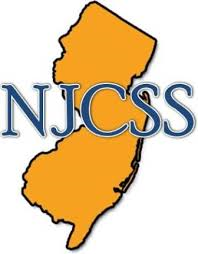Columbus Day or Indigenous Peoples Day?
On October 11, 2021, cities across the United States celebrated Indigenous People’s Day. The idea of a day celebrating the indigenous peoples of the Americas was first introduced at the United Nations in 1977. In 2007, a UN Declaration on the Rights of Indigenous People declared that October 12 would be an International Day of Solidarity with the Indigenous Peoples of the Americas. On October 12, 2021, New York Governor Kathy Hochul signed a proclamation recognizing Indigenous Peoples’ Day. However, Hochul also marched in a Columbus Day parade. President Joe Biden issued a similar proclamation declaring that “On Indigenous Peoples’ Day, our Nation celebrates the invaluable contributions and resilience of Indigenous peoples, recognizes their inherent sovereignty, and commits to honoring the Federal Government’s trust and treaty obligations to Tribal Nations.”
In New Jersey, legislation was introduced in the State Assembly to replace Columbus Day with Indigenous People’s Day as an official state holiday but it did not pass. Newark has recognized Indigenous People’s Day since 2017 and Princeton since 2019. New Jersey has three state-recognized tribes, the Nanticoke Lenni-Lenape Tribal Nation, the Powhatan Renape Nation, and the Ramapough Lunaape Nation. It also has the largest concentration of people of Italian ancestry in the United States. Columbus Day has been celebrated since 1937. Jameson Sweet, a Rutgers University professor, argues that switching from Columbus Day to Indigenous People’s Day is “about acknowledging this difficult past that is usually erased.” Joseph Pennacchio, a Republican state senator from Morris County, responds that Columbus’ voyages “The bottom line is that little flicker of flame started what we now know as America.”
Lisa DuBois, New York–based artist curator and photojournalist, Social Documentary Network: “We are at the start of a new age in American history, one in which the past will be examined more closely. Thirteen states do not observe Columbus Day as a public holiday. Indigenous Peoples’ Day or Native American Day is observed and celebrated in Alaska, Hawaii, Iowa, Louisiana, Maine, Michigan, New Mexico, North Carolina, Oregon, South Dakota, Vermont, Washington, D.C., and Wisconsin and South Dakota instead of Columbus Day. For centuries, we have been misled by skewed interpretations of historical events, and fiction has turned into perceived facts. We as a society recoil when confronted with unpleasant realities, and a minority must bear the responsibility of enlightening others with the truth, due to multigenerational impressions carried along with the fervor of religious and or political convictions on topics such as slavery and Native American genocide. Columbus Day will evolve into an Italian American appreciation day as the focus shifts to the magnificent contributions that Italian Americans have made to the diversity of a new multicultural America, and Columbus will claim his rightful place in history as a ruthless explorer.
Karla Freire, Metropolitan Expeditionary Learning School, Queens, New York: “I firmly believe that Columbus Day should be permanently renamed “Indigenous Peoples Day” in order to commemorate the millions of lives that were lost in the Americas during European conquest in the 15th and 16th centuries. Additionally, it should be a day to openly acknowledge and reflect upon the traumatic effects of colonialism that are still felt by Indigenous peoples and people of indigenous descent, today. The name “Columbus Day” needs to become a remnant of the past. It should be referred to as “Indigenous Peoples Day” on a national level. To continue to honor Columbus, as a country, is deeply harmful and offensive to indigenous peoples of the United States, as well as some within the Latinx community, like Latinx people of indigenous descent. As a Latina of indigenous descent, it pains me to think about anyone honoring Columbus or when people are upset regarding its name change. Many people in “defense” of Columbus Day do not realize or fully process the horrific, dishonorable behavior Columbus and his men carried out in the Americas after 1492. According to historical accounts, written by Columbus himself, the peoples Europeans first encountered were peaceful, gentle, and even generous towards them. Yet, Columbus and his men, fueled by greed and cruelty, tortured and murdered them. They brutally raped women and young girls. Dogs, trained to kill, were brought from Spain to attack and murder any “disobedient” or “rebellious” indigenous peoples. To defend Columbus and regard him as a man that deserves statues and a holiday dedicated to him, demonstrates a fundamental lack of historical knowledge, depth, and empathy.
For those that state it is unfair to Italians, it denies them an opportunity to celebrate their heritage – I ask the following questions: Do you really want to celebrate your heritage using a despicable person, like Columbus, as your cultural representative? There are so many other Italian figures who can be honored and used to represent your culture, who are not problematic–why not pick someone, like Mother Cabrini, to honor instead? Finally, the most important question for Columbus Day defenders is: Why are you still so willing to celebrate your heritage through Columbus, even though he was a man who tried to erase my own heritage and culture?”
